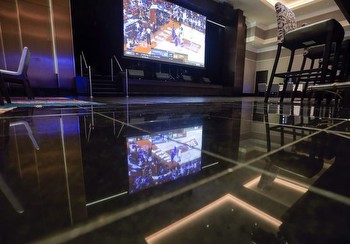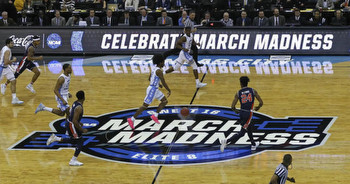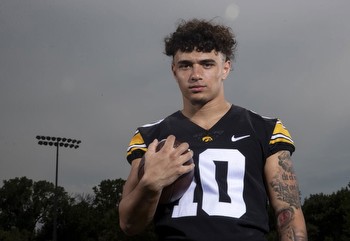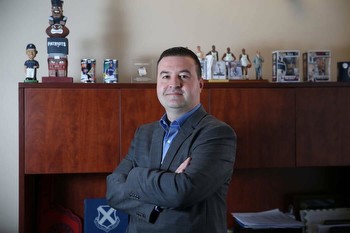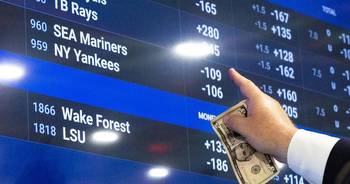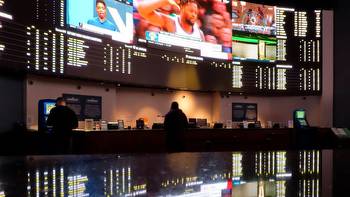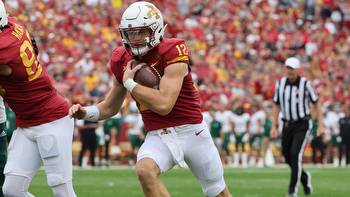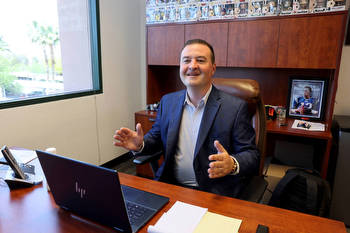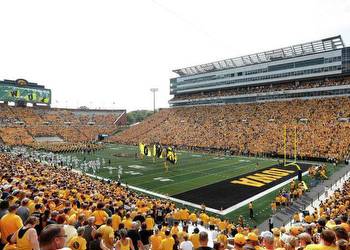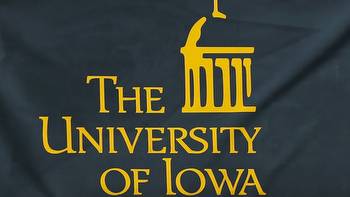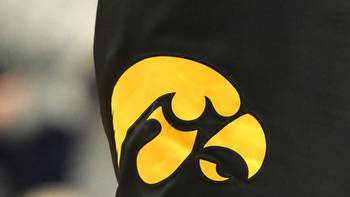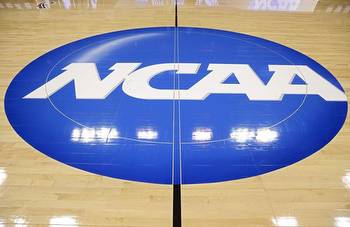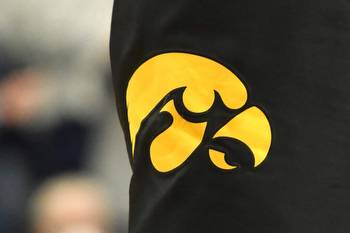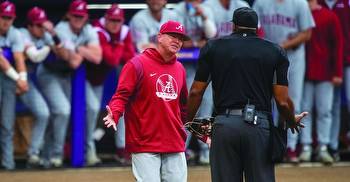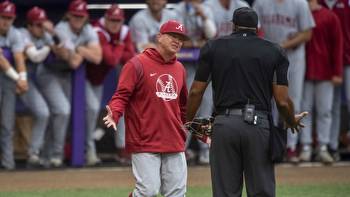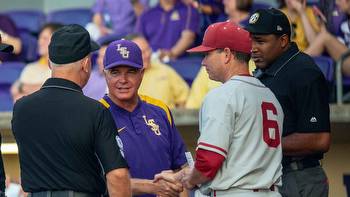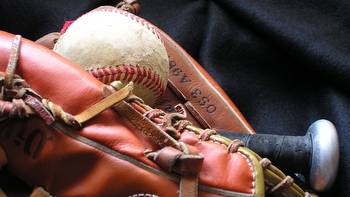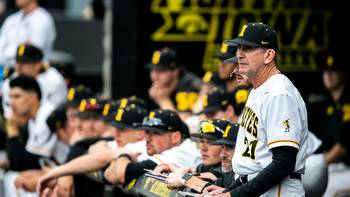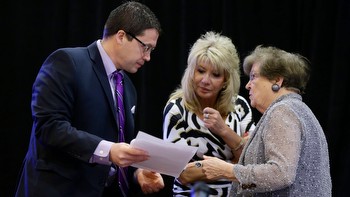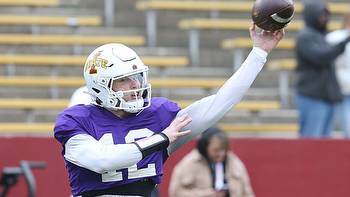Hawkeye and Cyclone sports bets leave question mark on integrity
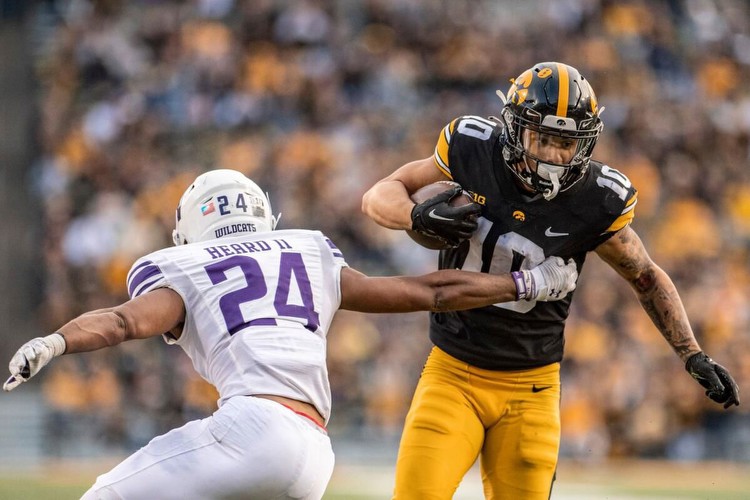
DES MOINES — At least five Iowa or Iowa State University student-athletes allegedly placed illegal bets on games in which they participated, according to charges filed by prosecutors.
Despite that, the state agency that regulates Iowa’s gambling industry continues to insist there’s no evidence that the integrity of those games has been called into question. In other words, the Iowa Racing and Gaming Commission insists based on the information it has that those athletes did nothing during those games to attempt to alter the outcome or win their own bets.
Sports betting experts say that is a plausible explanation, but one expert also said it is difficult at this point to know for sure — in part because of reporting processes that were skipped because of Iowa’s unusual regulatory and law enforcement framework.
When asked this week whether he can take the Iowa regulatory commission at its word, Matt Holt, chief executive officer of the sports gambling monitoring company U.S. Integrity, had a simple answer: “No.”
A total of 16 current and former Iowa and Iowa State student-athletes and other individuals have been charged with placing illegal bets in the wake of an investigation announced earlier this year by the Iowa Division of Criminal Investigation.
The charges of tempering with records involve underage betting, which experts said typically is caught by regulators thanks to technology that can place the precise location at which a bet was placed online.
More student-athletes beyond those facing criminal charges may be facing penalties from the NCAA, the body that governs college athletics, for violating its rules against betting on college sports.
U.S. Integrity has partnered with dozens of major college and professional sports organizations, including Major League Baseball, the National Basketball Association, the PGA Tour, the Big 12 and Pac-12 conferences and the sports betting companies DraftKings, FanDuel, BetMGM, and Caesars Sportsbook.
U.S. Integrity also announced Friday a partnership with the Big Ten Conference.
Holt said most states’ regulatory and criminal investigation departments for gambling are in the same state agency. In Iowa, gambling is regulated by the Racing and Gaming Commission, but investigations are conducted by the Division of Criminal Investigation, part of the Iowa Department of Public Safety.
Holt said in other states, once questionable betting behaviors are detected, his company is notified and then sends alerts to sports betting companies across the country to see if they have observed any similar activity. That did not happen in Iowa, Holt said, because of the state’s different framework.
“So because the normal protocols that we see in other states weren’t followed in Iowa, because they have that split that most people don’t have, I can’t say with any certainty whether there was integrity issues or not,” Holt said during an interview. “Because the integrity (protocols) that give us the confidence, that give us the transparency, they did not take place in this in this instance. And thus, I’m not sure. I’m like you: I have to take their word. We have had communication with them, and they’ve relayed that same messaging to us.”
Brian J. Ohorilko, administrator of the Iowa Racing and Gaming Commission, said US Integrity doesn’t have access to specific wagering activities from these cases because the information is part of an ongoing investigation, which makes it confidential.
“We have observed and analyzed the information and can confidently say that based on the current information available from that and a host of other factors as indicated in our August 3 release, there simply is no evidence of match fixing or point shaving from these cases,” Ohorilko wrote in an email response to The Gazette.
The Iowa Racing and Gaming Commission has stood by a statement it issued May 9, in the early days after the investigation became public:
“Specifically, as part of the IRGC’s responsibilities to regulate sports wagering, the IRGC is always examining wagering activity utilizing information available from integrity monitoring providers, sportsbooks, other regulatory jurisdictions, sports leagues, and the public,” the statement reads. “The IRGC does not currently have any information that would call into question the integrity of any sports wagering contest or event involving the University of Iowa or Iowa State University.”
It is possible that the commission’s insistence is accurate: that those accused Iowa and Iowa State student-athletes simply placed bets on the games in which they played, but competed the same way they always had previously and did not attempt to influence the game with the intention of influencing the outcome of a wager.
“It’s certainly possible,” said John Holden, an associate professor at Oklahoma State University who studies sports betting. “The fact that there isn’t an observable, obvious situation (involving the athletes in the games on which they bet), yes, I do believe that’s possible.”
Holden said often it requires “human intelligence” — some sort of confession or witness testimony — to prove that an athlete intentionally performed differently with the goal of influencing the outcome of a wager. He said absence that sort of firsthand information, such allegations are difficult to prove.
Even a substandard performance — like a football kicker missing a key field goal or a basketball player missing shots — does not necessarily prove malicious behavior, because those things can happen in the normal course of any sporting event.
“From a criminal law perspective, I would argue that it would be very difficult to make a case — absent some human intelligence — that these players did anything. I think, barring some additional information, what is being put out (by state regulators) is probably the best that they can prove,” Holden said in an interview.
“You can’t prove these things. It’s very difficult to show when someone has given less than a subpar effort — intentionally,” Holden added. “People are sick. People have injuries that aren’t disclosed. Things like that happen all the time. Everything can go right, and you can still miss a kick.”
Despite the lack of information that leaves him unsure, Holt also said the state’s explanation is plausible.
“It’s certainly plausible,” he said. “And I will say this: about 70 percent of people that we see wagering on their own events bet on them as an individual or their team to do something positive.”
There has been at least one exception to that in Iowa, a criminal complaint shows, but it didn’t pay off:
Former Hawkeyes receiver Arland Bruce IV bet the under on Iowa’s 2022 game against Northwestern, in which he played, according to the complaint. A bet on the under means a bet that the total score of the game will fall short of an outcome projected by the gambling companies. In other words, Bruce, whose job as a Hawkeye was to help his team score as many points as possible, placed a bet that the teams combined would score fewer points than projected.
But it’s a bet he lost: The total score of that game beat the projection.
Iowa football coach Kirk Ferentz said that if it is proved that bets were placed by Iowa student-athletes on games in which they played, that is “a deal-breaker.” He also said he believes the NCAA needs to create even stronger policies regarding sports betting.
“We’ll deal with that when we get there, but I think as we move forward, at least in my opinion, it’s been a learning process for me (and) it’s probably time for new policies from the NCAA,” Ferentz said. “I think they already have addressed that. It’s probably time to take another step. … I’m not sure (current NCAA policy) is aggressive enough based on the world we’re living in.”
In an emailed response to questions, a spokesperson said the NCAA “remains steadfast in protecting the integrity of competition.”
How were the Iowa, ISU illegal bets caught?
The Iowa DCI has not said what prompted its sports betting investigation.
While they could not comment on the specific cases in Iowa, the experts, Holden and Holt, said the most common way regulators identify potential illegal sports betting is by using cellphone technology and the paper trail created when an individual creates a sports betting account.
Creating an account with a sports betting company requires multiple pieces of identifying information, which leaves a trail of identifying documents. And the sports betting company’s apps register the precise location from which any bet is placed.
So, for example, if a bet is placed on the UI campus near a football facility — but that bet was placed by an account holder who lives in another city — red flags go off with those sports betting companies and regulators.
“One of the things that people don’t really appreciate about the modern gambling world is how much technology there is, the surveillance — that’s my guess — is it’s true for virtually every app on your phone,” Holden said. “And that coupled with sort of human intelligence, coupled with patterns of behavior, it wouldn’t be too hard to figure out who is accessing or attempting to access an account, whether that might be the person who actually signed up for the account or someone else.”
Holt said that the gambling industry is as highly regulated as the financial industry, and that because gambling companies are licensed and regulated by the government, those registrations leave a paper trail that clearly identify an account’s holder.
“I can tell you that there’s nothing easier for a regulator to catch,” Holt said. “If we’re getting all these pings from an NFL men’s locker room at the facility, at a time where there’s no fans, no vendors, no officials, no security, just the team, and it’s pinging Mary Smith from the men’s locker room … Mary Smith isn’t in the men’s locker room. It’s very easy to then figure out that somebody is fraudulently using Mary Smith’s account, which is against the law.”
And the ability to track the precise location at which a bet was placed helps regulators, both Holt and Holden said.

